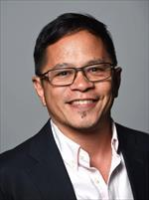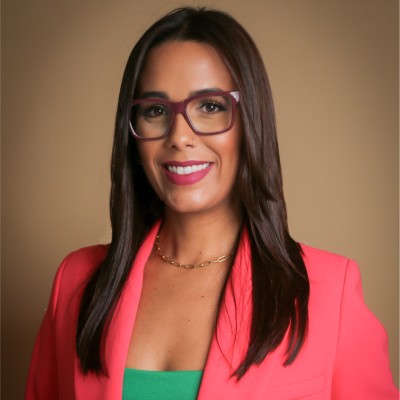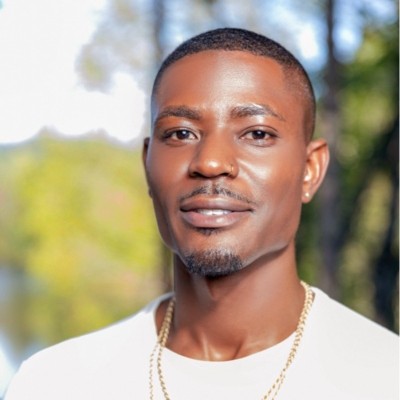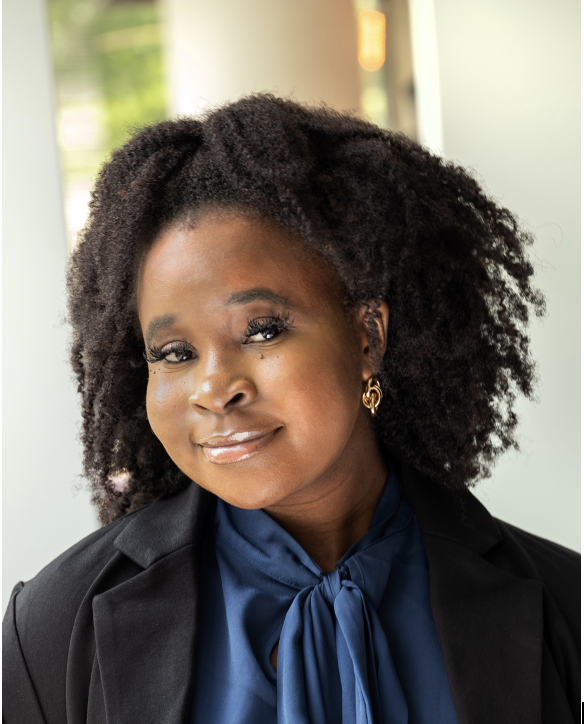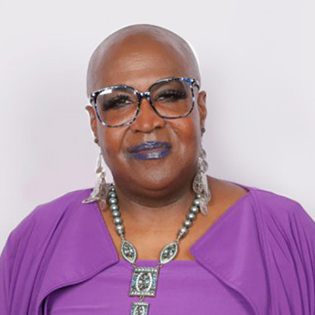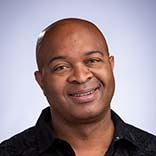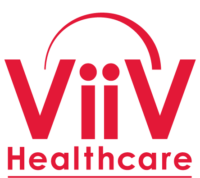Speakers
Opening Plenary Speakers
Preston Chow
Prescott Chow is the Co-Principal Investigator and Director of the Pacific AIDS Education & Training Center (Pacific AETC). Pacific AETC envisions a healthcare system that is accessible, responsive, culturally affirmative, and centered in social justice and health equity, where the lessons of HIV and chronic care are fully integrated into patient- and community-centered models.
Prescott has worked for over 20 years in HIV-related areas, with significant capacity-building assistance experience at local, regional, national, and international levels. He has led a CDC-funded national training program and worked with host governments in the Asia/Pacific region to scale up HIV care and treatment. In his role with Pacific AETC, Prescott leads a diverse partnership spanning four states and six U.S.-Affiliated Pacific Islands to provide capacity-building services that support local priorities to improve systems of HIV services. Pacific AETC, funded through HRSA’s Ryan White HIV/AIDS Program, collaborates with primary care providers to ensure quality care for those most in need, in alignment with the National HIV/AIDS Strategy and HIV Care Continuum. He is especially interested in work that addresses health inequities for communities of color and marginalized populations.
Jennifer Li
Jennifer Li is a director of the Center for Community Health Innovation at the O’Neill Institute. She works with frontline communities and grassroots organizations to address social determinants of health in cities and neighborhoods, focusing on community economic development, environment, worker rights, and other systemic factors that cause disproportionate health outcomes for long-underserved racial and socioeconomic groups in the United States.
Prior to joining the O’Neill Institute, Jennifer served as a supervising staff attorney at the Harrison Institute for Public Law, a law clinic at Georgetown, where she also taught as an adjunct professor. In that role, she led the institute’s work in climate adaptation, community development, and human rights. Before coming to Georgetown, she was a Fulbright scholar in India, where she researched climate policy and taught international human rights at Jindal Global Law School. Jennifer holds a B.A. from New York University, a J.D. from Fordham University School of Law, and an LL.M. from Georgetown University Law Center.
Juan Pablo Zapata
Juan Pablo Zapata, PhD, is a psychologist and serves as the Associate Director of the Lab for Scalable Mental Health. He is also a Research Assistant Professor of Medical Social Sciences at Northwestern University. Juan earned his PhD in Clinical Psychology from Marquette University in 2022 and completed his Doctoral Internship in Health Psychology at the University of Washington. He also completed a NIH T32 Postdoctoral Fellowship in Translational Science, HIV, and Sexual and Gender Minority Health at ISGMH.
With extensive training and research experience, Dr. Zapata specializes in LGBTQ and Latino mental health, HIV, public health, digital health, and implementation science. His professional focus revolves around developing, adapting, and evaluating interventions and implementation strategies to achieve health equity among key populations affected by HIV and mental health disparities. During his fellowship, he participated in three national effectiveness-implementation hybrid trials of eHealth interventions for adolescents and young sexual minority men. His independent research has centered on adapting and assessing culturally grounded implementation strategies aimed at scaling up and disseminating evidence-based HIV prevention (e.g., PrEP) and behavioral health interventions to Latino men who have sex with men. In 2024, Juan joined the Lab for Scalable Mental Health and collaborates closely with Jessica Schleider, PhD, to develop, test, adapt, and disseminate scalable, evidence-based mental health solutions, with a particular emphasis on single-session interventions (SSIs) for underserved youth.
Harold Phillips
Harold Phillips currently serves as Deputy Director of Programs at NMAC, formerly known as the National Minority AIDS Council, where he oversees policy, leadership development, technical assistance programs, communications, and advocacy efforts to address the disparate impact of the HIV epidemic on minority communities.
Previously, Harold served as Director of the White House Office of National AIDS Policy (ONAP), where he led the effort to set the Administration’s domestic HIV/AIDS priorities. This included implementing the National HIV/AIDS Strategy (NHAS), consulting with the Office of Management and Budget, and coordinating with the Domestic Policy Council, the National Security Council, and the Office of the Global AIDS Coordinator to ensure a comprehensive and lived-experience-informed response to the HIV epidemic.
Harold also held positions at the Health Resources and Services Administration’s HIV/AIDS Bureau (HRSA/HAB), including Office Director for the Ryan White Program’s AIDS Education and Training Centers (AETC), Special Projects of National Significance (SPNS), and PEPFAR-funded programs. He served as Deputy Director of the Ryan White Part B and AIDS Drug Assistance Programs (ADAP), working with recipients, planning councils, providers, and patients. Harold served on the CDC/HRSA AIDS Advisory Committee (CHAC) from 2003–2010. He holds a Master’s in Urban and Regional Planning from the University of North Carolina at Chapel Hill and a B.A. from Kalamazoo College. He is a person living with HIV.
JaDawn Wright Morgan
JaDawn Wright Morgan is infectiously passionate and motivated by over 15 years of exceptional experience working in HIV prevention and care programs across two continents. She began her career in the Master’s International Program with the Peace Corps, serving as a Capacity Building Volunteer in South Africa with the National Association of People Living with HIV/AIDS (NAPWA).
Her expertise in program management and curriculum development led her to a position at the University of South Florida in a youth-focused HIV prevention and care program, Youth Education Services. In this role, JaDawn worked with young people living with HIV and vulnerable youth from LGBTQ, homeless, Black, and Latino communities, helping them access sexual health services in the Tampa Bay area. Her efforts catalyzed collaboration among community partners and expanded her expertise in research design and implementation.
With the ability to successfully navigate both theory and practice, JaDawn joined the faculty at the University of South Florida’s College of Public Health. She continues to inspire learning and change on a national platform in her current position, where she develops curricula on cultural humility, social determinants of health, and strength-based approaches to assist health departments in engaging communities most impacted by health disparities.
*“I am thankful each day that I have a career that aligns with my purpose: creating social justice and cultivating culturally responsive practices. Promoting health equity is a life-and-death situation for many in my community. For far too long, silence, shame, poverty, racism, and sexism have led to death. I am committed to addressing the intersectionality of these issues so that everyone can experience equality in health and so many other aspects of life.”*
Plenary 3 Speakers
Alexandra Bonnet
Alexandra Bonnet is a Senior Associate at JSI, where she leads project initiatives and serves as a subject matter expert in HIV/AIDS planning and technical assistance. With over 15 years dedicated to public health, her mission is to facilitate equitable access to healthcare services, focusing on the Latino community and LGBTTIQ youth. Her expertise lies in program development, monitoring, and evaluation, ensuring compliance and effective implementation of evidence-based interventions.
As the founder of SEX-ED Puerto Rico, Alexandra has translated her passion for sexual health education into a consulting platform that enhances agency capabilities in program supervision and social media branding.
Auntré Hamp
Auntré Hamp, MEd, MPH, LPC, is Senior Director of Public Health Systems at NASTAD, where he drives strategic leadership in health systems, financing, and equity initiatives to improve HIV care. As Principal Investigator on key HRSA-funded projects, he advances data integration and quality improvement for HIV and Medicaid programs. With deep expertise in surveillance, data management, and health systems strengthening, Auntré has led national HIV data initiatives and innovative health information systems. His work ensures stronger collaboration, smarter data use, and more effective public health responses.
Danielle Campbell
Danielle M. Campbell is an experienced clinical researcher who integrates principles of health equity and implementation science into biobehavioral research into HIV treatment, prevention, and cure research. She is a member of the research faculty at Charles R. Drew University of Medicine and Science in the School of Medicine, Division of Preventive and Social Medicine. Danielle has expertise in infectious disease related work, COVID-19, MPOX, and HIV. She is a member of the iSTRIVE research lab where her work applies an intersectional lens to examine the influence of structural systems and paradigms of power on the production of health inequities among racial and ethnic and sex and gender minority populations living with and affected by HIV and other marginalized populations with an emphasis on women and girls. She has conducted research in biomedical HIV prevention and cure, and the intersections of sexual health and systematic oppression. She is a past Chair of the HIV/AIDS Section of the APHA, and has served as Chair of the Science Board and Co-Chair of the Joint Policy Committee. She dedicates her energy to serving as a member of a community scientific subcommittee for a global HIV/ AIDS research network, and as a volunteer HIV tester/ counselor aboard a mobile testing unit, and as an educator and promoter of positive sexual health awareness. Danielle is a community organizer for HIV/ AIDS and sexual and reproductive health, rights, justice and awareness policies and campaigns.
Sean Smith
Sean Smith is the Senior Director of The Center to End the Epidemic at NMAC, where he oversees a $3M+ federally funded portfolio, leading initiatives that strengthen community-led solutions to public health challenges, dismantle systemic barriers, and expand sustainable resources for communities disproportionately impacted by HIV and related syndemics.
As a health equity, systems change, and program development strategist, Sean centers his work on dismantling barriers that perpetuate health disparities and inequities. His focus ensures that communities most impacted by systemic oppression have access to the resources, leadership, and sustainable solutions necessary to thrive.
Sean specializes in developing and scaling multi-million-dollar capacity-building initiatives, leveraging systems-thinking frameworks to expand workforce development, advance sustainable funding strategies, and support organizations in eradicating social determinants of health. He has managed and mobilized over $10M in federal, philanthropic, and private-sector funds, ensuring strategic allocation to drive community-centered solutions. His work supports organizations in creating sustainable, transformative change that addresses root causes rather than symptoms. He also champions naps, encourages others to rest often, and promotes decentralizing work as a primary focus of life.
Closing Plenary Speakers
Carlos Saldana
Dr. Carlos Saldana (he/el) is an Assistant Professor in the Division of Infectious Diseases at Emory University. He previously served as the medical advisor in the HIV Program of the Georgia Department of Public Health. His research focuses on implementation science and involves innovative approaches including HIV Molecular Epidemiology and Artificial Intelligence to focus HIV prevention efforts.
Destiny Pearson
Destiny Pearson is an advocate from South Florida who is passionate about fighting for health equity and civic engagement. As an Associate Manager at NMAC, she is committed to empowering young Black people through HIV prevention initiatives. In 2024, she led the HBCU Liberation Tour, mobilizing young Black voters across seven HBCUs. Through her experiences working on Capitol Hill, organizing, and amplifying young Black voices, Destiny continues to be a leader of change.
Toni Newman
Toni Newman is the Director of The Coalition for Justice and Equality Across Movements at NMAC. She previously served as Interim CEO of the Black AIDS Institute and Interim President of the LYRIC Youth Foundation. Toni is a faculty member at the Transgender Strategy Center and Chair of the Board of Directors/Managing Director for TransCanWork, a $1 million nonprofit for Workforce Development in California. She also serves as Membership Chair of the California Black Leadership Council.
Toni’s prior roles include Interim Director of Employment Services at the SF LGBT Center, Executive Director for St. James Infirmary, and Director of Development for Maitri Compassionate Care AIDS Hospital. She also served as Interim Director of Development and Communications at To Help Everyone Health and Wellness Centers and worked as a strategic fundraiser, volunteer recruiter, and legislative aide for Equality California.
Toni is a graduate of Wake Forest University and a current candidate for her Juris Doctorate (JD). She is a member of The National Trans Bar Association and The National LGBTQ+ Bar Association. She is a best-selling author of *I Rise – The Transformation of Toni Newman*, based on the poem “I Rise” by Dr. Maya Angelou. Her second book, *Living My Authentic Life in an Unapologetic World*, is expected in summer 2025. In 2024, Toni received awards for Advocacy from the National Bar Association and The Williams Institute at UCLA School of Law. She was named 2024 National Nonprofit Leader of The Year by the Anthem Awards.
Russell Campbell
Russell Campbell is Director of the Office of HIV/AIDS Network Coordination (HANC), based in Seattle at Fred Hutch Cancer Center. HANC provides oversight and strategic direction for all cross-network coordination activities across ACTG, HPTN, HVTN, and IMPAACT. A servant leader, Russell has dedicated his career to supporting public health and addressing racial injustice. For three decades, he has been involved in research related to HIV, prostate cancer, and diabetes prevention and treatment. He remains committed to addressing health disparities that disproportionately affect communities underrepresented in clinical research.
Contact
For information, updates, and questions about NMAC’s 2025 US Conference on HIV/AIDS, please email Conferences@NMAC.org


